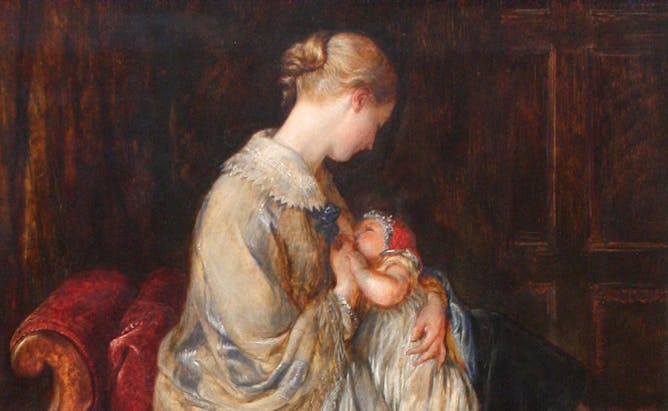|
|
|
Editor's note
|
|
Monday morning: no doubt you wish you were still in bed. I know I do. Poor sleep seems to hound most of my friends and colleagues, whether due to stress, kids, too much screen time or a lively social life. Meanwhile, the constant barrage of messages telling us how important it is to get enough sleep does nothing to help us chill out enough to get it.
Anxiety about sleeplessness might seem to be a particularly modern problem, exacerbated by smartphones and the multiple Netflix series you simply must catch up on. But it’s actually been around for a good while – at least since the Victorian era, when (like today) new technologies, from electric lighting to telegrams and industrial factories, were transforming society at an accelerating rate.
You might presume that those thought to be worst affected by this new “plague” were the working class, who had to work extraordinarily long hours in the new and dangerous factories. But the perils of sleeplessness weren’t even considered in relation to them. Rather it was the new class of “brain-workers” – lawyers, academics, bankers – who were considered most at risk.
And while the argument over bottle vs breastfeeding is also seen as a very modern debate, the Victorians also have much to tell us about this too.
On the day of an international summit on climate change, Marc Hudson looks at why the UN has made such little progress in 30 years.
|
Josephine Lethbridge
Interdisciplinary Editor
|

|
|
Top stories
|

Kinga Cichewicz/Unsplash
Sally Shuttleworth, University of Oxford
As early as the 1860s the twin diseases of modernity – overwork and sleeplessness – became the focus of cultural anxieties.
|

The Young Mother, by Charles West Cope.
Wikimedia Commons.
Jessica Cox, Brunel University London
In an act of 'mummy-shaming' to rival anything today’s internet has to offer, Queen Victoria is thought to have named a cow in the royal dairy after her daughter, who had decided to breastfeed.
|

Is the UN’s climate process fit for purpose?
Alexandros Michailidis/Shutterstock
Marc Hudson, University of Manchester
The history of the UNFCCC shapes what is and isn't possible today.
|
Politics + Society
|
-
Tim Bale, Queen Mary University of London
Labour's grassroots members and its leadership look set to clash at its Conference in Brighton. But don't bet on the members getting Corbyn to back Remain.
-
John Preston, University of Essex
Advice on how to prepare for Brexit is as much about projecting the government's vision for life after October 31 than it is about what citizens need to do.
-
Steve Taylor, Leeds Beckett University
The risk of "pathocracy" is always close. And once entrenched, difficult to dislodge.
-
Philip S. S. Howard, McGill University
The Canadian election has been dominated by old pictures of Justin Trudeau wearing blackface. Instead of focusing on Trudeau's poor behaviour, a larger discussion is needed to act on systemic racism.
-
Darren Lilleker, Bournemouth University; Anastasia Veneti, Bournemouth University; Daniel Jackson, Bournemouth University
The complex mechanisms behind the pictures we see.
-
Vincent Durac, University College Dublin
Houthi rebels have claimed responsibility for strikes on key Saudi oil facilities. How they've grown their military strength.
|
|
Health + Medicine
|
-
Lisa Schölin, Liverpool John Moores University; Lesley Smith, University of Hull
Front line professionals need more support and time.
-
Gemma Lewis, UCL; Glyn Lewis, UCL
Sertraline is effective at treating mild and moderate depression.
-
Christine Stabell Benn, University of Southern Denmark
We need to investigate the overall health effects of vaccines.
-
Ian Hamilton, University of York; Niamh Eastwood, Middlesex University
Getting hold of illegal drugs is easier than ever, with home deliveries and even loyalty cards.
|
|
Science + Technology
|
-
Justyna Anna Nalepa-Grajcar, Aberystwyth University
Toxoplasma already infects a third of the world's population but it's very hard to study and so treat.
-
Giuliana Mazzoni, University of Hull
New research has uncovered how to make mice better at remembering.
-
Jonathan Ridley, Solent University
F50 catamarans used in the "Formula One"of sailing can travel at up to 50 knots.
|
|
Environment + Energy
|
-
Damien Pollard, University of Cambridge
The human voice is a sonic fingerprint - and Greta Thunberg's tells a powerful story.
-
Laurie Wright, Solent University
Automation can be a more efficient use of resources, but it may also mean people consume more.
|
|
Education
|
-
Paul Orsmond, Staffordshire University; Richard Halfpenny, Staffordshire University
The prospect of going to university is exciting but it can also be an anxious time. Here are the things you need to know from the start.
-
Karen Clegg, University of York
New students, listen up, here's what you need to know about university essays and assessments.
|
|
Arts + Culture
|
-
Julie Doyle, University of Brighton
The climate strikes have allowed young people to seize the narrative on climate change. Here's how the media should empower them.
|
|
| |
Featured events
|

|
Dragon Hall, 115 - 123 King Street, Norwich, Norfolk, NR1 1QE, United Kingdom of Great Britain and Northern Ireland — University of East Anglia
|

|
Dalhousie Building, Dundee, DD1 5EN, Dundee, Angus, DD1 5EN, United Kingdom of Great Britain and Northern Ireland — University of Dundee
|

|
Julian Study Centre Lecture Theatre, University of East Anglia, Norwich , Norfolk, NR4 7TJ, United Kingdom of Great Britain and Northern Ireland — University of East Anglia
|

|
Julian Study Centre Lecture Theatre, University of East Anglia, Norwich, Norfolk, NR4 7TJ, United Kingdom of Great Britain and Northern Ireland — University of East Anglia
|
|
|
|
| |
| |
| |
| |
| |
|
|
|
|
|
|
|